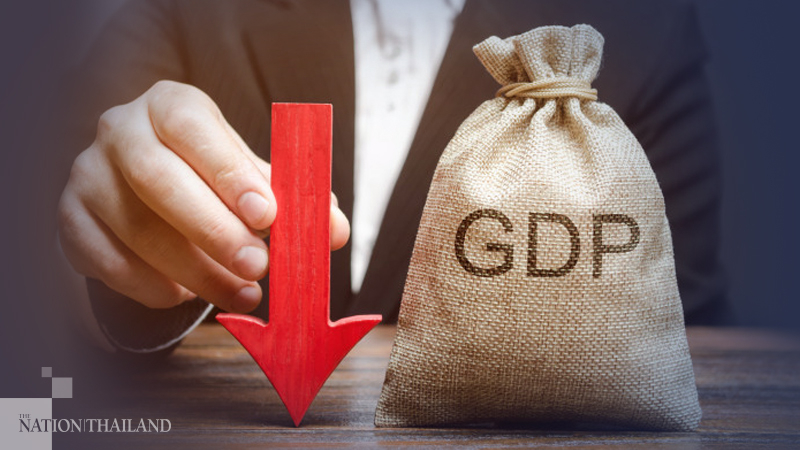KResearch cuts growth forecast to 0.5% due to virus

Kasikorn Research Centre (KResearch) says the intensifying global Covid-19 outbreak, including a rapidly increasing number of infected people outside China, complicates any assessment of its impact on the economy.
Assistant managing director Nattaporn Triratanasirikul said that, if China can control the number of infections within the next month or two and the situation elsewhere, particularly in Italy and South Korea, can be contained in the second quarter – and if the number of infections in Thailand does not increase too rapidly in that period – GDP growth is still likely to fall, from KResearch’s previous estimate of 2.7 per cent to 0.5 per cent.
Although this decrease seems significant, she said, the estimate is applied to a fast-changing situation, and if the contagion eases within the first half of the year as is expected, GDP growth could be stronger in the last quarter.
She emphasised that this situation is unlike what happened in 1997 because it has been caused by external shocks, while the 1997 crisis was the result of an imbalance in economic mechanisms and the business sector. It was quite difficult to tackle and slow to return to normalcy.
The tourism sector will likely be the hardest hit by Covid-19, Nattaporn said. Thailand is expected to lose Bt410 billion in tourism revenues, accounting for 2.4 per cent of GDP, while the number of foreign tourist arrivals may decline by 8.3 million, representing a contraction of 20.8 per cent year on year.
Thai exports could see a 5.6-per-cent contraction against KResearch’s prior estimate of minus-1 per cent as the virus’ broader spread further dampens the global economy.
The shrinkage foreseen in exports is also due to weakening demand, while Thailand’s manufacturing sector has been adversely affected by the disruption of supply chains at home and especially in China.
Domestic consumption and investment will likely slow because consumers have been reluctant to spend and travel. This in turn might hurt the Thai retail business, with turnover projected to drop by more than Bt100 billion.
Given this, close attention must be paid to liquidity within the business sector and domestic employment, being critical issues that the public sector must maintain as its top priorities, plus budgetary disbursement and the likelihood that the government will approve additional budget.
Regarding monetary policy, if GDP growth shrinks during the first and second quarters, it is likely the Bank of Thailand will trim its policy rates by at least 0.25-0.5 per cent in of 2020, prompting commercial banks to follow suit.
Although a policy rate cut might not be a panacea for quickly reinvigorating economic activity during this abnormal period, it could help the business and household sectors ease their financial burdens somewhat.
Looking into the second half, if the virus situation improves, economic activity and GDP could resume growth.
Regarding the commercial banking business, a steep decline in economic growth, especially during the first half, might hurt interest and fee income.
Interest income from loans in particular will be the most affected because loans have been hit by additional interest rate cuts. KResearch has revised its 2020 loan growth forecast down to less than 1 per cent (from 3 per cent), which would be lower than the 2.2-per-cent growth reported at the end of 2019.
As a result, allowance for impairment on loans might increase in line with rising NPL ratio from the 2.98 per cent seen at the end of 2019. KResearch will have to monitor the situation under the new accounting standards during the first quarter before assessing their future directions once more.
Nevertheless, the central challenge for Thai commercial banks for now is to assist their customers via various measures in collaboration with the public sector so that they can get through this difficult time.
Meanwhile, the impact of the Covid-19 outbreak on operating results of commercial banks has been acknowledged by investors to a certain extent, and the results will likely be consistent with those of overseas financial institutions.





